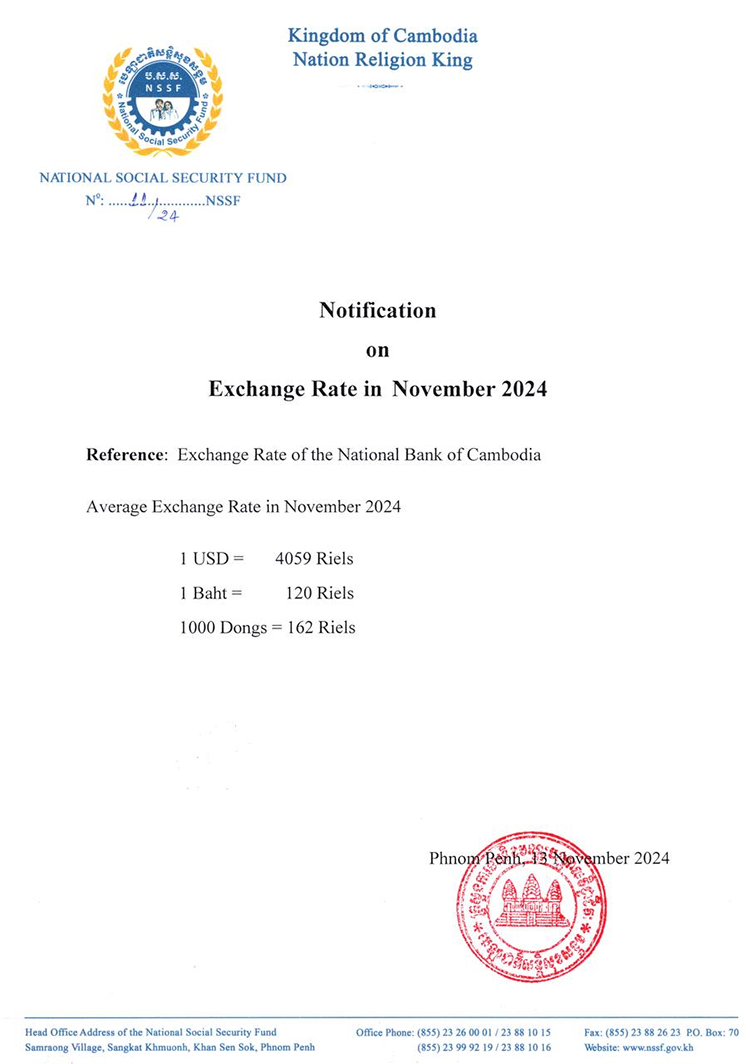Phnom Penh – On 11 April 2018, the National Social Security Fund (NSSF) of Ministry of Labour and Vocational Training signed a Memorandum of Understanding with Samdech Techo Volunteer Youth Doctor Association (TYDA) to strengthen and expand service provision of health facility for the NSSF member to be held in Phnom Penh Hotel.
The event was presided over by H.E. Ouk Samvithyea, Delegate of the Royal Government in charge as Director of the National Social Security Fund, and H.E. Dr. Hun Manet, President of Samdech Techo Volunteer Youth Doctor Association (TYDA), and taken part by approximately 50 participants.
H.E. Ouk Samvithyea said that the purpose of Signing Memorandum of Understanding is to attain the supreme recommendations of Samdech Akka Moha Sena Padei Techo Hun Sen, Prime Minister of the Kingdom of Cambodia, to strengthen and expand service provision of health facility for the NSSF member with the aim of allowing them to feel warm for accessing services of health facility by collaborating between NSSF and TYDA, which are full of skillful doctors with experiences of diagnosis and treatment.
Meanwhile, H.E. Dr. Hun Manet expressed congratulation on collaboration between TYDA and NSSF to contribute to provide medical care services to workers. He continued that so far TYDA has collaborated with the NSSF Team to provide treatment services free of charge to workers and people in Phnom Penh and provinces.
TYDA granted diagnosis and treatment services including: general diseases, oral diseases, minor-surgery, optometric diseases, ENT, heart diseases, echocardiography (ECG), hemorrhoid, gynecological diseases, fetal echo, blood test, thyroid, liver diseases, lung diseases, gastroenteritis, skin diseases, and other diseases.
TYDA was established with the aim of three main purposes comprising:
- Contribution with the national institutions, particularly Ministry of Health, with a view to providing public health services to people free of charge regardless of race, color, or political affiliation.
- Contribution with the Royal Government in order to reduce poverty through domiciliary health service provision activities to the poor, especially the poor who live in the rural areas.
- Contribution to train human resources in health sector as well as give an opportunity to the volunteer student doctor and youth in a bid to contribute to charity works in the society.



























